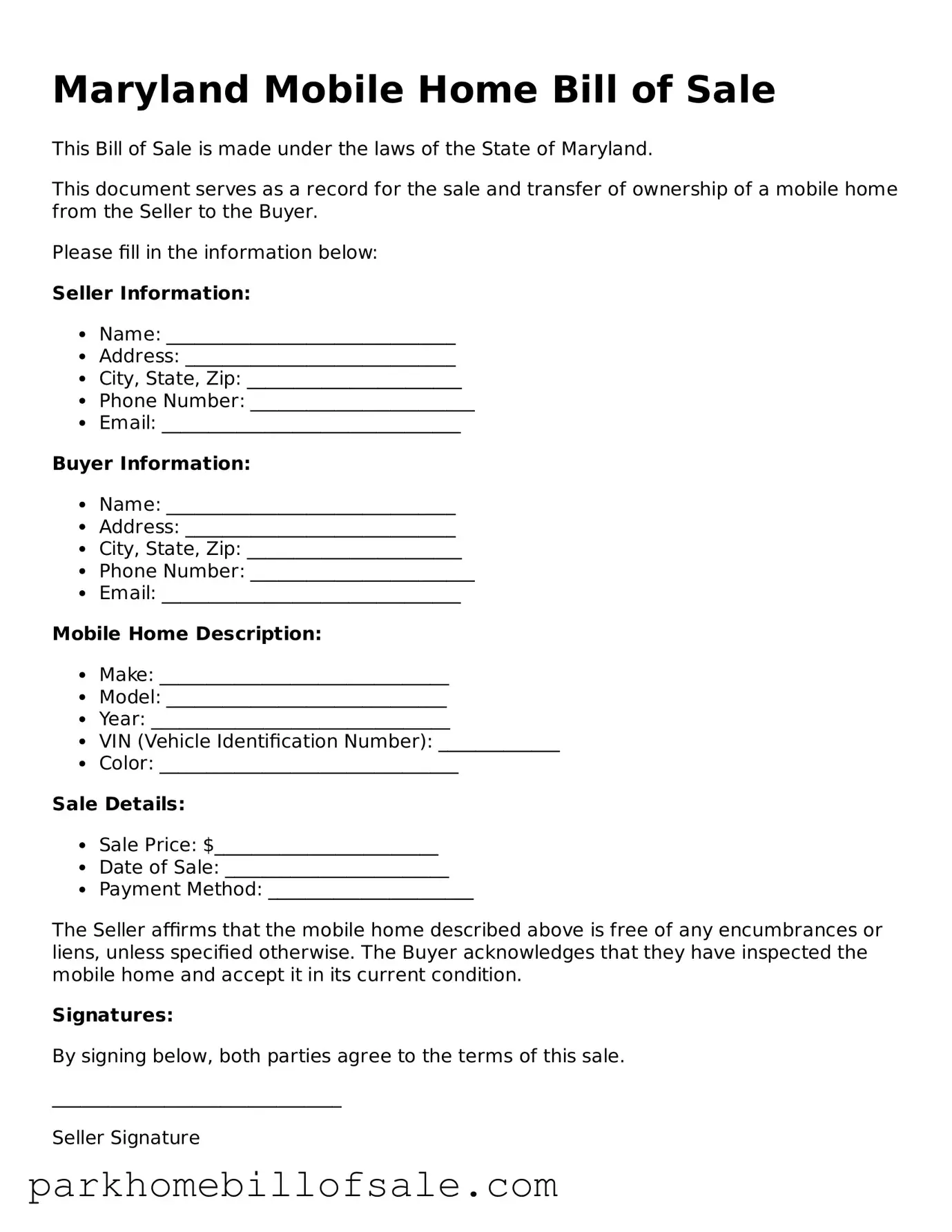Documents used along the form
The Maryland Mobile Home Bill of Sale form is an important document for transferring ownership of a mobile home. However, several other forms and documents are often used in conjunction with it to ensure a smooth transaction. Below is a list of these documents, along with a brief description of each.
- Title Certificate: This document proves ownership of the mobile home. It must be signed over to the buyer to complete the transfer process.
- Affidavit of Affixation: This form is used when a mobile home is permanently attached to land. It helps clarify the status of the home as real property rather than personal property.
- Notice of Sale: This notice informs the local authorities about the sale of the mobile home. It may be required for tax purposes or to update local records.
- Bill of Sale for Personal Property: If there are additional items included in the sale, such as appliances or furniture, this document lists those items and confirms their transfer to the buyer.
- Sales Tax Form: In Maryland, a sales tax may apply to the sale of a mobile home. This form is used to report and pay any applicable taxes associated with the transaction.
Using these documents alongside the Maryland Mobile Home Bill of Sale ensures that all aspects of the sale are covered. Proper documentation protects both the buyer and the seller during the transfer of ownership.
